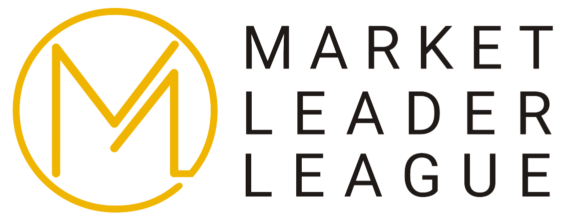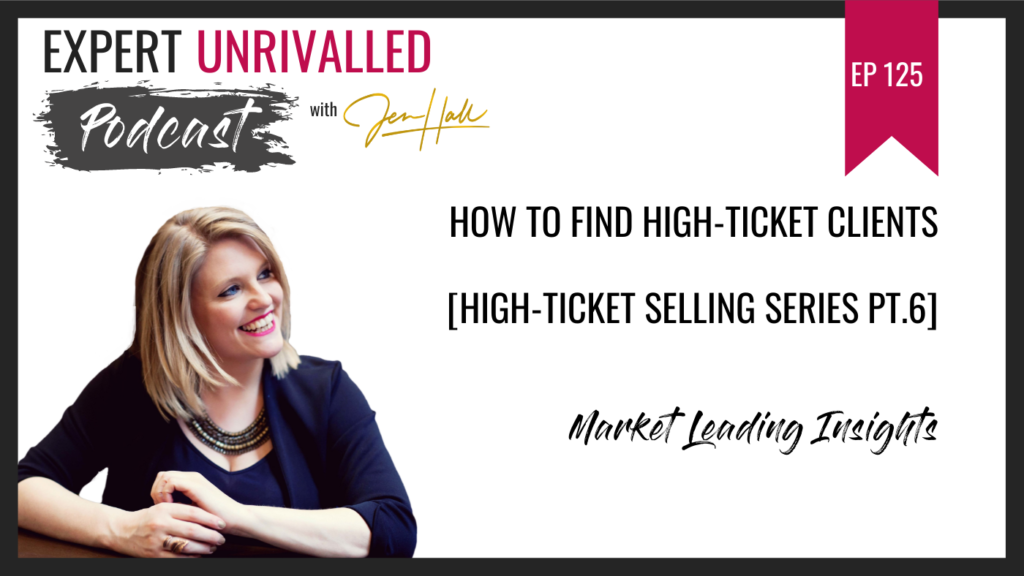As part of the high-ticket selling series, I’m going to show you how to find high-ticket clients. It is my most asked question. As you know, not all high-ticket are walking around with a billboard on their head asking for high-ticket. Nor as they wealthy and looking for luxury.
Who buys high-ticket?
There are common assumptions we can make about what someone has to spend. But there is a fine line between making assumptions and being incorrect which will harm your business. I’ve covered this a lot in previous episodes in this high-ticket selling series.
However, we can see that high-ticket buyers tend to be further along in their journey than in the beginning. Yet, it comes down to someone who is psychologically committed to and end result. People will find money to pay when they really want the end results. High-ticket selling is less about what people can afford, and more about what is going on in their mindset. This is why it’s important o get your messaging spot on. When you tap into their desires and commitment, you’ll find people will pay more.
The bigger the problem, the bigger the desire to fix the problem.
Handling objections
People who pay high-ticket will have tried solutions before and it has not worked. They might have spent a smaller fee and it not given the right results. Or they have tried to do it themselves. Or they have been burnt and are still as committed. This kind of client will come with more objections, so they want to know they will get the results from you.
There is still a big boom of people shooting their prices up for no reason and clients not getting the results. Which is a shame. It makes people concerned about sending money. So it is important to push the trust-building content else it will be difficult to convert.
We need to be better with both our marketing and our integrity. I know my podcast listeners are the ones who want the best for their clients and have integrity. You need to address their fears and make sure they are right for what you offer. You need to explain what will be different about your products and services for them to get the results.
But you need to address objections. People make assumptions that may not be true. There needs to be a balance between what is true and what is not. I think of it as shining a light on what is important. For example, for someone who does not think they will find time for my programme, I explain that they need to make time to show up and do the work. For me, this is a red flag as they may not be committed as I’d need. I am very honest with people about this.
Focus on the right objections
You need to focus on the right objections. For instance, if someone is complaining about the price, it is because you have not convinced them of the ROI. You have not sold them on the result you will get this person. If someone does not buy from you it is likely because they have not bought into you.
If you are priced right with integrity, you should have some evidence and be able to back up your prices. Then it comes down to your messaging. You need to help show them what is real and what is not.
They know you get what you pay for
High-ticket clients know that you get what you pay for. Often because they have bought at a lower price before it hasn’t worked. They prefer to buy high-ticket because they know lower price products will only take them so far.
Equally, when they invest, they want to put it in the right place. So you need to be confident in your own services so that they feel secure in making that purchase. They don’t want to gamble so they are more committed.
Where are people?
You can appeal to these kinds of people to come forward through your marketing. When you know what the problem is and the big outcome, you can agitate both of these within your marketing. It’s like shining a beacon to pull people towards you.
It depends on your ideal client. For example, they could be a corporate client, B2B. You could be looking at a startup that has funding and grants but are they at the right stage? They might have bigger problems than in your area. You need to look where they are on their journey and what is appropriate for them. A start-up doesn’t need help on policies, for example, but a corporate does.
Besides a bigger business will have a bigger budget and so is likely to be a higher ticket purchase. Whether consumer or corporate, you will need to position yourself as the one to go to for this problem you solve. You need a solid USP and the process you follow. They need to make sure they are investing in the right people so you need to articulate the value you deliver. This is crucial to being chosen as the service provider.
Corporate may not be for you and prefer not to work with bigger companies. But you need to ask if you are avoiding it because you are scared or because you want to work with a different kind of person.
Outreach
Corporates have little time and lots of choices. You need to sell out of the crowd. Jessica Lorimer says that when it goes to tender, it is too late. You need to be in before then. Instead, you need to do outreach and get ahead of the game.
It is about targeting a particular niche and client then looking at outreach. There are some niches and ideal clients where outreach will turn them off. Instead, you need to show up on social media or networking events.
Some of my clients have come from events. When someone is at an event, they have had to get up and dress up, travel somewhere and pay, they have made an effort to go to this event. You have a more engaged listener and ideal client who tends to be more serious. If they have done all these things, they are more serious about working with you.
Where are they? They are at events that require some effort a lot of the time.
A podcast is an ideal way to engage prospects. They are listening to you and it’s like your being on stage and them listening to you talk. As they listen, they are making decisions. Podcast listeners tend to be more engaged than on Facebook Live.
We can be more strategic about how and where we are showing up. We need to show up in a way that demonstrates trust and credibility.
Masterclasses are another way to show up and nurture your prospects.
How you show up
If your ideal client is going to get turned off by your showing up in their inbox, how else are you going to get in front of them? Cold outreach can work with corporate but not a consumer. It depends on your niche and industry but you need to be where they are.
It may not be in a Facebook Group but instead in a membership. Where can you appear in front of them to show them you exist, what you do and what value you deliver? Then you can be adding on calls to action to join your masterclass, buy your book, hear you speak. Or run a workshop directly into a membership.
Be strategic
If you are wondering where people are – they are everywhere. You just have to be strategic about your niche, what they are interested in and who are the other people that you can collaborate with.
For example, I have a client who works with fashion and women changing their lives. We looked at where these women might be. We realised that they live in a particular geographical region and do Pilates. So she is collaborating with Pilates teachers. This is working to great success and making connections.
You need to think about this strategically. What doesn’t work is thinking you are a business coach and go grab people from other business coach groups or from competitors. It doesn’t feel good and also it becomes about who shouts loudest. You can do research in these groups and look for commonalities. It’s about finding people who complement you that you can collaborate with.
In EverTrek we have the Dream 100 list. It is about listing the 100 influencers for your ideal client or key people. You can reach out to these people and do an exchange of value to audiences and it is not icky. There is instead a synergy of business owners. Find the people who complement you.
Starting point
There are multiple places you can find your high-ticket clients but you start with who is my ideal client, where do they hang out and what are they listening to? Social media is a great way to do it but don’t think you can do the whole process of high-ticket selling on a Facebook post. It needs to be a whole journey. How you pull them in, nurture them, handle objections and get them on a call.
If your content plan exists on loads of social media posts, it won’t happen. You need to think about how the whole process will work. You need a well-thought-out funnel and positioning plan. And if there are no events or speaking gigs on your topic, then create your own one. Firstly, it pulls out your ideal client and gets them to come to you. Secondly, it immediately positions you as the go-to expert and leader in the field.
The problem people have when they ask where the clients are is usually because they lack clarity. When you have clarity, then it’s easier to find your ideal client.
Useful links:
Book a Call with Jen – bit.ly/claritycallpodcast
Download my FREE Seven Figure Market Leader Roadmap –http://www.marketleaderleague.com/marketleaderroadmap/
Send your emails to jen@jen-hall.com
Available on Apple iTunes, Spotify & Stitcher (Just search Expert Unrivalled Podcast)

